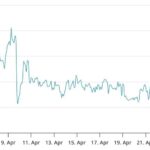Tether, the prominent issuer of the USDT stablecoin valued at nearly $150 billion, has made headlines with its acquisition of a significant 70% stake in Adecoagro, a key agricultural firm in Latin America. This strategic investment began in September 2024 when Tether allocated $100 million for a 9.8% ownership. Following a series of moves to bolster their stake, they seized control of the company in March.
Adecoagro, which boasts a market capitalization approaching $1 billion, operates across Brazil, Argentina, and Uruguay, overseeing various agricultural activities including sugar mills and dairy operations, as well as renewable energy assets. This acquisition positions Tether at the forefront of one of the region’s major food and bioenergy suppliers, marking a notable expansion into traditional industries.
“By aligning with Adecoagro’s proven expertise in agriculture and renewable energy, we are taking another concrete step toward bridging traditional industries with the future of decentralized finance and economic empowerment,”
stated Paolo Ardoino, CEO of Tether. This partnership aims to not only enhance Adecoagro’s production capabilities but also aligns with Tether’s mission of promoting “economic freedom” through decentralized finance, particularly targeting underserved markets.
Moreover, this acquisition may signal Tether’s broader aspirations in the realm of asset tokenization. Following the launch of its asset tokenization service Hadron last year, Tether is doubling down on efforts to digitize various real-world assets, potentially reshaping investment landscapes.
The deal also led to a reshuffling of Adecoagro’s board, with new members possessing ties to Tether’s strategic vision, bringing fresh perspectives into the company. With such rapid advancements, Adecoagro’s shares saw a slight uptick of 2.6% on Wednesday, reflecting investor optimism regarding Tether’s aggressive expansion into agriculture and renewable energy.

Tether’s Strategic Investment in Adecoagro
Tether has made significant moves in the agricultural and renewable energy sectors through its recent investment in Adecoagro. Below are the key points regarding this development and its potential implications.
- Investment Overview:
- Tether purchased a 70% stake in Adecoagro, a leading agricultural firm in Latin America.
- The total investment amounts to $100 million, initially acquiring a 9.8% stake in September 2024, increasing to 51% in February, and finally to 70% in March.
- Adecoagro’s Operations:
- Adecoagro’s portfolio includes sugar mills, rice farms, dairy operations, and renewable energy assets located across Brazil, Argentina, and Uruguay.
- This firm is one of the most significant producers in the region, indicating Tether’s commitment to agriculture and sustainable energy sources.
- Strategic Goals:
- Tether aims to enhance Adecoagro’s production capabilities while promoting “economic freedom” through decentralized finance.
- This move aligns with Tether’s broader mission of investing in underserved markets.
- Tokenization Ambitions:
- Tether’s investment can be seen as part of a strategy to tokenize real-world assets, building on their asset tokenization service launched for easier conversion of various assets into digital tokens.
- Through this strategy, Tether hopes to bridge traditional industries with decentralized finance, potentially impacting how individuals and businesses interact with investments and asset management.
- Management Changes:
- Adecoagro’s board was restructured post-investment, with several members replaced by Tether-associated executives.
- Juan Sartori, a businessman with political ties, became chairman, indicating a shift in strategic direction aligned with Tether’s objectives.
- Market Response:
- Adecoagro’s shares witnessed a rise of 2.6% following the announcement of the deal.
- The increased interest may reflect investor confidence in Tether’s vision for the future of agriculture and decentralized finance.
“By aligning with Adecoagro’s proven expertise in agriculture and renewable energy, we are taking another concrete step toward bridging traditional industries with the future of decentralized finance and economic empowerment,” said Paolo Ardoino, CEO of Tether.
Tether’s Strategic Leap into Agricultural Investment: A Comparative Analysis
The recent acquisition by Tether of a 70% stake in Adecoagro marks a significant shift in the landscape of both stablecoin and agricultural investment sectors. By leveraging its vast resources and expertise, Tether is positioning itself to capitalize on the booming agricultural market in Latin America. This move closely parallels other tech-driven investments in traditional sectors, such as Elon Musk’s ventures in clean energy and agriculture, which suggest a trend of merging technology with conventional industries. However, where Tether’s approach has strengths, it also faces unique challenges that could influence its path ahead.
Competitive Advantages: Tether’s strategic investment is founded on several competitive benefits. Firstly, control over Adecoagro situates Tether as a dominant player in food and bioenergy production across significant markets in Brazil, Argentina, and Uruguay. This not only diversifies Tether’s portfolio but also positions it favorably within the realms of ESG (Environmental, Social, and Governance) investing—a sector that’s gaining traction among investors. Additionally, the backing of Adecoagro’s established agricultural expertise enhances Tether’s credibility in an area where financial firms often struggle to demonstrate practical understanding. The integration with Adecoagro also aligns with Tether’s mission of fostering economic freedom through decentralized finance, potentially attracting a demographic of investors interested in sustainable and ethical investment practices.
Competitive Disadvantages: On the flip side, Tether’s aggressive approach may overlook the complexities involved in the agricultural sector, including market volatility, regulatory challenges, and environmental concerns. With the reshuffling of Adecoagro’s board to favor Tether’s executives, there’s a risk of alienating existing stakeholders who may prioritize agriculture over cryptocurrency ambitions. Furthermore, Tether’s controversial reputation in the crypto space, marked by past fluctuations and legal challenges, might deter traditional investors looking for stability in the agricultural sector. This could create hesitancy for partnerships or investments from entities wary of aligning with a brand associated with risk and instability.
Implications for Stakeholders: This development is likely to benefit a variety of stakeholders. Investors interested in the convergence of agriculture and blockchain technology might see an opportunity for innovation and growth. Local farmers and businesses could leverage Tether’s technological advancements for better operational efficiencies and market access. However, existing Adecoagro employees and shareholders could face disruption from the transitional leadership, which might lead to uncertainty and concerns over the company’s long-term strategic direction. Additionally, traditional agricultural firms must now consider this new competitive paradigm where smart investments and innovative technologies increasingly dictate market dynamics.
Overall, Tether’s stake in Adecoagro signals a bold step forward in the merging of traditional industries with the burgeoning world of decentralized finance, albeit with potential hurdles that require careful management and strategic foresight.
















